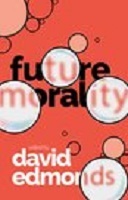Chapter 8 AI in Medicine
Author(s)
Kerasidou, Angeliki
Kerasidou, Charalampia
Collection
WellcomeLanguage
EnglishAbstract
AI promises major benefits for healthcare. But along with the benefits come risks. Not so much the risk of powerful super-intelligent machines taking over, but the risk of structural injustices, biases, and inequalities being perpetuated in a system that cannot be challenged because nobody actually knows how the algorithms work. Or, the risk that there might be no doctor or nurse present to hold your hand and reassure you when you are at your most vulnerable. There There are many initiatives to come up with ethical or trustworthy AI and these efforts are important. Yet we should demand more than this. Technological solutionism and the urge to “move fast and break things” often dominate the tech industry but are inappropriate for the healthcare context and incompatible with basic healthcare values of empathy, solidarity, and trust. So how can such socio-political and ethical issues get resolved? It is at this juncture that we have the opportunity to imagine different different different futures. Using Grace's fictional story, this chapter argues that in order to shape the future of healthcare we need to decide whether, to what extent, and how—under what regulatory frameworks and safeguards—these technologies could and should play a part in this future. AI can indeed improve healthcare but, instead of casting ourselves loose and at the mercy of this seemingly inevitable technological drift, drift, we should be actively paddling towards a future of our choice.
Book
Future MoralityKeywords
AI; medicineISBN
9780198862086Publisher
Oxford University PressPublisher website
https://global.oup.com/Publication date and place
2021Grantor
Classification
Medical and healthcare law
Medicine and Nursing


 Download
Download